The first byline I listed in a journal article was that I
was a Southern Writer. As the Bush years
moved ahead and my beloved Texas moved away from its anarchist irreverence for
everything, when friends with whom I once partied, experimented, sucked the
marrow of life’s rediculous ride became born again Christians in Texas, I
stopped describing myself this way. But
when I drive South, I still feel the calling of this beloved region of
storytellers, chaos, history, football, tragedy and treachery. I am ashamed of all that is wrong with it,
the Bush, Jesse Helms and Nathan Bedford Forests of the region, but still love
the messy experience if offers us. I hate the wars, starvation, and slavery;
but feel a calling to the stories, music, and the writing. I still love my beloved Ann Richards, the
South of Athens, GA, and Columbus’ Carson_McCullers, of
Mark Twain, Jimmy Carter, LBJ, William Styron, Johnny
Cash, the New Bohemians, the
Butthole Surfers, Jerry Jeff Walker, Walker Percy, the high and
lonesome songs of Bill Monroe, and lyrical stories of Willie
Morris and his homage to a Southern boy, turned Yankee, in North
Towards Home. Every southern kid has
to face down the often tragic chaos of their family history. Some of us live our lives up North as
result. Traveling back, there’s a lot to
remember, and take in.
 |
| Some of my heroes growing up - from Carson to William,Walker to Kinky, Ann to the New Bohs, the Buttholes, and the New Bohs again and Willie and Eudora. |
My Mom used to vacation in the Highlands of North Carolina
as a child. So instead of traveling to
Ireland as we did last summer with my brothers. We drove South to hang out in a cabin in the
woods off a lake near mom’s old romping grounds, in a compound in the
woods.
Just leaving town turned out to be hard. Earlier in the day, we’d gone to the emergency room after some home repairs challenges went awry.
Five stitches later, we took the train from Garrison to Grand Central on the Metro North Line. Just half the family. Mom and number two would be staying home. She walked us to the train station in Garrison, helped us get tickets and said goodbye.
Soon enough, we we were on our train from Garrison to Grand Central on the Metro North Line, overlooking the Hudson on our way South to the City. Zipping into city, we crossed town to the Port Authority, where we hoped to catch the 6:15 New Jersey Transit Train out to Princeton.
The best laid plans never quite work as planned with mass transit and rush hour, but after a few hits and misses we finally caught the right train, muddled through the traffic of bodies in spaces, all hoping to buy tickets, sprint to the track, and get a seat with their buddies at the same time. The image of the Who concert on Cincinnati come to mind. Between detours in Secaucus and Newark, we made to Princeton in 90 minutes.
There we hung out, ate and rested for the trip.
Princeton to Carlisle, PA, where grandma Heim was born and
brother Will went to college. Walking
through the town, its history seeps out of the buildings, of the monuments,
stories of the Indian Wars, those who participated in the US revolution, and the
quiet years in between.
My traveling companion and I made our way South, reveling in
the small towns, relieved to see some of the US landscape is not just a
shopping mall, making out way to Highway 81.
South via Maryland, I saw a sign for Antietam National Battlefield, the site of the bloodiest battle in US history, with 23,000 dead in one day, September 17 1862, more than D Day or any day before of afterward.
South via Maryland, I saw a sign for Antietam National Battlefield, the site of the bloodiest battle in US history, with 23,000 dead in one day, September 17 1862, more than D Day or any day before of afterward.
So I pulled the car around for us to take a look.
Walking through the space, its eerie how quiet it is
now. But the history is riveting. This is hallowed ground, sorrowful, history. 23,000 dead in one day, their memory seems to
recede through the trees.
We see the ways the confederates outflanked the Union
Generals. 500 Georgians held off 5000
union troops at Burnside Bridge, in a testament to their eerie ingenuity.
We spent hours walking there, looking at the family farm the
Confederates tried to destroy. And the memories
of thousands and thousands dead.
We were there for hours before driving South through West
Virginia and Virginia. The bitter legacy
of the space are unending but so is the lush beauty of the drive, the small
towns, and landscapes. Its good to know
that some of this country has not become a complete shopping mall. We listened to Bowie and other dance tunes
from our super summer dance mix, ate skittles, and pulled over at Econolodge
for the night, eating at Chili’s, where I used to go every Friday night after
high school football games. The place
didn’t seem to have changed an inch.
High school kids hanging out with baseball caps on, groups of folks,
chatting away, in a friendly manor
which is also part of the culture of the South. It was a great day in holy America, listening to music, hanging out, eating junk food.
We woke the next day, drove through the rain, through
Virginia, to Tennessee in the Mountains.
Every rest stop has a different story.
I tried to buy some beer for later that night with my brothers, but the
clerk said they cannot sell beer on Sundays.
We’d have to drive to Carolina for that.
So, we drove East to North Carolina to the Highlands, winding through
country roads lined with creeks and trees, past Ashville.
The directions specified:
Left on Walnut Creek and follow for 9 miles until it ends at stop sign
Right on Pine Creek/N Norton (for about ½ mile)
Follow rd around sharp curve to left
Then look for small house with big silver tin roof on left
Left here at Memory Lane
Cross bridge then go to left
And follow down to house on point at lake
Driving from Walnut Creek to Pine Creek to Memory Lane, as we moved from paved to dirt roads. GPS was done by this point. But the Big Fish sign pointed the way.
“You know where the big fish is?” I asked some guys drinking
a beer.
“Just down there.”
And there was a sign with a big fish, by a house overlooking
a lake.
We spent the rest of the day exploring and hanging out,
waiting for my brothers and Mom to arrive from Stockholm, St. Paul, and
Princeton, descending with kids on this small country romp away. Many beers and dinner later, after stories of
travel and trouble, we went off to bed.
I was up first, made some coffee. Mom and Dodi and I ate breakfast.
“Was this far from where you used to vacation when you were
a kid?” I asked.
“It was about twenty miles.”
“Do you remember much of that?”
“Just vignettes that come across my mind. Even on vacation, my grandfather used to wear
a coat and tie. I remember playing in
the Creek when I was a little girl, seven or so. We were making a damn. And Granddad came down and helped us make it
in his suit.”
“Well, he was there to have fun.”
Every day she told a different bit of her story of her
childhood down there, playing with bugs, hanging out on her own, collecting
moss, discovering the world.
We sat for breakfast talking about Walmart, where Mom had
shopped the day before. And the conversation
turned to the economics and labor.
“I am a firm believer in Keynesian economics,” explained
Mom. “I grew up in the Depression. And those programs, the WPA, really
helped. Columbus High School was built
by those programs.”
Other mornings, we all canoed in the lake in back, on the
beach, or went hiking, or out for BBQ, or exploring the Vanderbilt Mansion,
Biltmore. Between the Grove Park Inn and Biltmore,
Ashland is a gem.
Our last day, we drove out to find the cottage where mom
used to come as a little girl in the 1940’s.
And the sign was right there for the Illges Cottage. A trip to bountiful moment, most of the space
was boarded up. Vines taking over the
old building.
There mom recalled a childhood here seven decades prior. “I
remember poking around in the bushes and seeing a nest of baby rattle
snakes, with their rattles pointing up, and running up to tell my cousins.”
“Did you go back to that spot?”
“No.”
Mom showed us the spot, under a walking bridge where the
snakes greeted her with their rattles.
“It was a long walk from the house to the pond.”
Walking around the
pond, the feeling of slow afternoons in Thomasville, Ga as a child, slow slow
afternoons outside looking at bugs, playing outside exploring- came washing
back.
After Mom’s grandparents passed in the 1950’s, the family
gave the cottage to a local university where it has remained and was eventually
boarded up.
Mom walked us up to the university where they showed us
there entomology lab, full of bugs and beetles collected from the area.
After a few more nights of bbqing and projects, we all
wrapped up the trip.
 |
| The brothers shepard and other scenes from big fish by jenn shepard |
The last day, my brothers would take their kids to Sliding Rock. We were heading off to the University of the
South, Monassas, Va and Gettysburg. And hopefully north towards home.
Somehow these plans are never quite so simple. We would definitely go home after a brief
detour to the University of the South in Sewanee Tennessee, where my Dad used
to teach and lots and lots of friends have found themselves within the less
than doctrinaire ethos of engagement with the arts, Episcopal theology, writing,
literary history, the stories of Walker Percy and Faulkner. It would take three hours to get there said
the GPS. We’d get there by noon. Meet friends for lunch and leave by two or
three. Driving on dirt roads listening
to JRR Tolkein stories somewhere between the Two Towers, everything was going great, until we stopped for gas. We had left Tennessee and then we pulled over
to a country store on the side of a mountain, starting gazing at the ephemera, old
knives, dear antlers, saddles and stuff, talking, driving out the wrong way and
the next thing I knew we were driving through Georgia and North Carolina
again. Somehow the time was off in the
GPS. I have heard about people getting
lost in the desert in Nevada when the GPS navigation lost the roads. Instead of
desert there were trees and lakes here somewhere in the back roads of the old
Confederacy. Sometimes a road trip takes
you into another time, beyond the time change from Easter to Central time, away
from this moment into Brigadoon or some sort of space where Rip Van Winkle
dwells, outside of this time. But not too far away, but still far enough to get
lost.
We pulled over at a rest stop and they pointed us in the
right direction, out beyond the time change.
The woman giving directions chatting us up about Brooklyn, travels, and
how many Yankees get lost here. And
gradually make it between lakes and rapids toward the old university where cell
phones did not seem to work. Lost contact with our friends.
Out of touch with everyone, we walked through the old
chapel, recalling the history of the college before the War of Northern
Aggression, as they refer to it, when the university burned in 1863. And all the money in the endowment, lost in
confederate currency. Last time I was
here the flags from the old Confederacy hung here. Today, these icons of slavery are packed
away.
Walking around, we strolled to the English department where
Dad used to teach, through the Cemetery where Rob and I drank last time I was
here for the writers conference. It’s a
lot like the feeling in Glasnevin in
Dublin.
“They have whole infantries from the war buried there,”
chimed my Dad’s old roommate from 1956 at Harvard. John and Lynn spoke at our wedding. They are dear friends. We talked about those old days, the
roommates, Fred who died in 1990, writing, depression memoirs, his
dissertation, Dad and Fred’s dads. “It’s
a wonder they made it so far after growing up with them.”
“There was a story in Sewanee Review about Southern writers
whose identity was lost in that moment after the war,” he chimed. “Everything was lost.”
We needed to leave.
It was now five PM and our short tour to Sewanee had taken all day.
We were five hours off.
But recalling those friends, Linda and Phil meeting us on a
whim, looking out at the wilderness, driving home, thinking about going there
and not being able to leave without seeing old friends, everything was found
again.
After a brief detour through Appalachia, Chattanooga, and
West Tennessee, its really north toward home today from Knoxville, via a few
battlefields, a detour through Shenandoah National Park, Manassas, VA, through time, history
Washington DC and hopefully we don't get lost in time we did
yesterday. Its easy to do here in the
trees, memories, Civil
War battlefields, and old friends here.
The alarm went off at 5:30 AM. And we got up to drive. A quiet rainy day, we headed out of
Knoxville. The journey through the Appalachians wound us through back roads,
sweet memories, good stories, and lost pieces of history. Of course, one cannot forget some of the
rascals who have come out of this territory.
But so have stories of redemption and social action. As we made our way past Manasas, Va, where the Confederates could celebrate a resounding victory, activists in DC were celebrating the fiftieth anniversary of Martin Luther King’s March on Washington. Thousands and thousands of them were there. While sometimes I think the South lost the war and won the peace, I was glad to see this little bit of push back. Lefty churches, such as Judson, were there marching, celebrating, and asking questions. The questions one is forced to consider in looking at the war – what does it mean to be a citizen – these never seem to be resolved.
As the Gettysburg
Foundation suggests:
“The causes of
the Civil War stem from three fundamental issues: the preservation of the
Union, the spread of slavery to new territories and the fundamental rights of
citizenship — in short, what it means to be an American…. While the Civil War was the bloodiest war ever fought on
American soil, it also brought about fundamental changes to the United States
Constitution. The ratification of the 13th Amendment put to rest, once and for
all, the issue of slavery. The 14th and 15th amendments further identified the
rights and benefits of citizenship. Today,
the United States continues to struggle with the fundamental questions of
citizenship, as issues with immigration have entered our national conversation.
The job of each of us remains: to ensure each person’s rights to “life, liberty
and the pursuit of happiness.” And today, Gettysburg is like a living classroom
for democracy.”
All the Civil War battlefields are. But have we really learned some of the
lessons of this period?
Reading the New Jim Crowe
and looking at the high rates of incarceration, or prison labor out in
the streets of Virginia, the overflowing jails full of immigrants detained by
our Immigration
Customs Enforcement, it is hard to imagine we have. “Inmate Laborers Ahead”
read signs through Virginia. When marchers brought this message to the march,
it must have hit a chord, as police confiscated signs with the words: “Stop
Mass Incarceration. Stop the new Jim Crow.”
Driving past Baltimore to New York, it was a relief to be
making our way back home. We’ve traveled to Prague, Montauk, Vieques, Texas,
Cape Cod and Appalachia this summer, watching family cope with aging, some struggle,
friends fight and come together, cooked more than our share on the grill, spent
hours in watering holes, beaches, and on the road. But it was time to go home.
 |
| In San Juan in June. |
Back at home, there was time for one more trip to Coney
Island and ride through the ferris wheel.
Summer was over. But
the Big Fish memories would linger.
 |
| Back in Brooklyn. Gorgeous Brooklyn. By Caroline Shepard |









































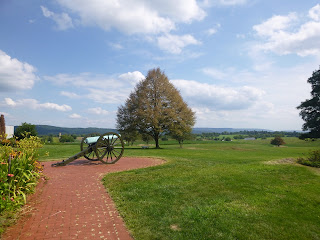










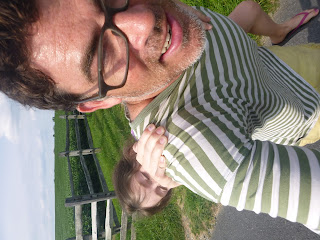


















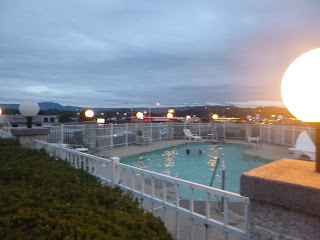


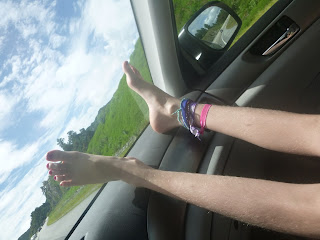
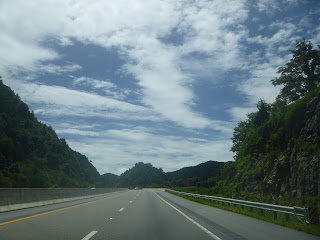












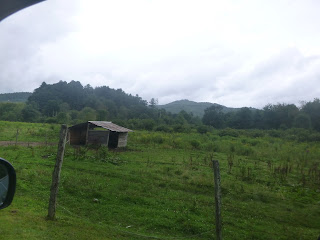


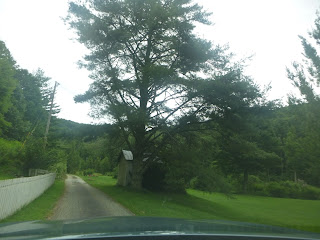








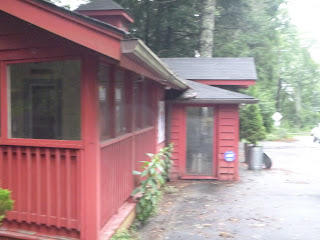





















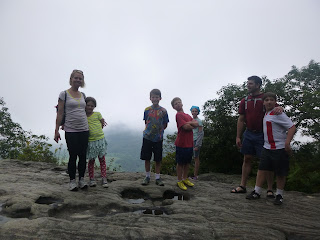






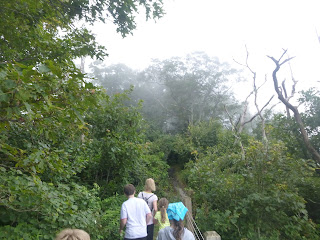

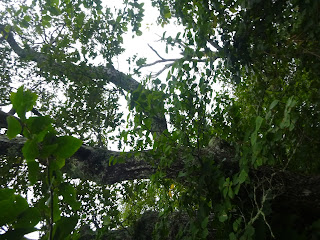
































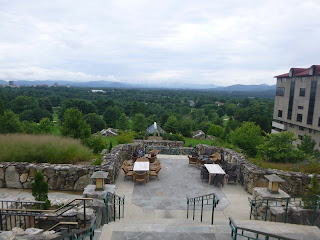



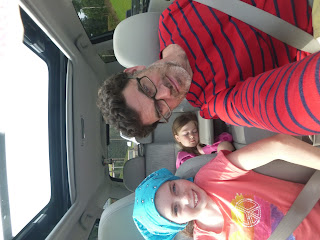


















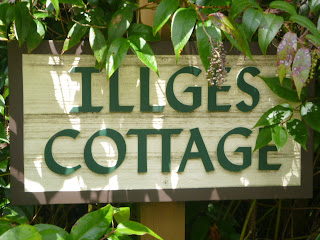


















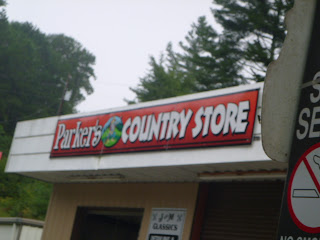


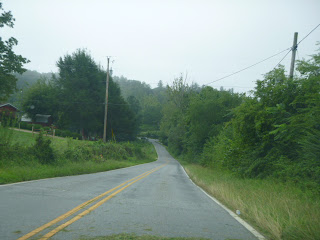












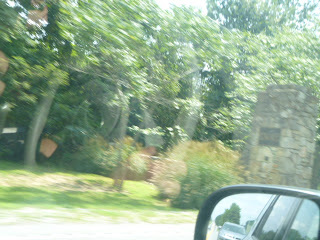



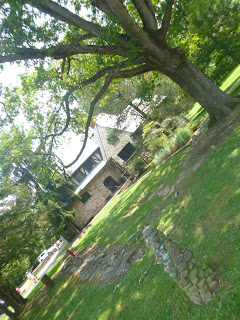







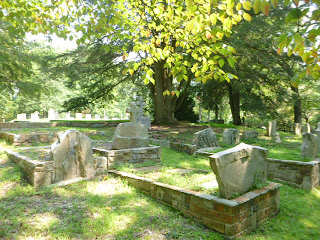

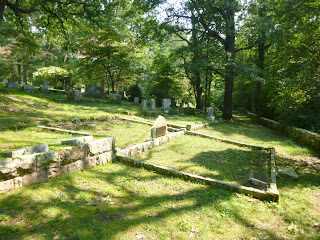











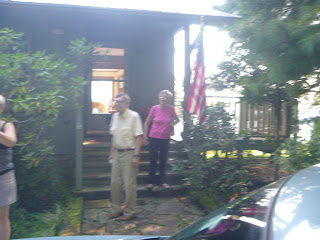



























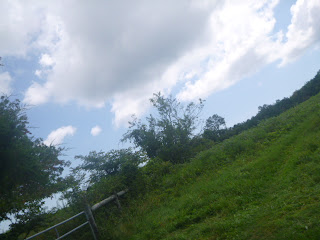





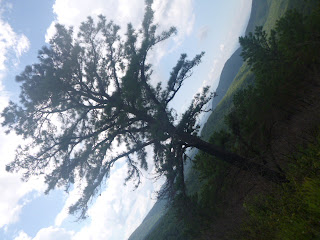











































No comments:
Post a Comment